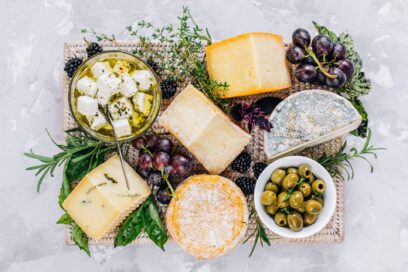- Il tuo carrello è vuoto
- Subtotale: €0,00

Sulphite-free wines first let's find out:
What are sulfites?
We hear more and more about sulphites and it is normally one of the first clearly visible indications on the label "contains sulphites". The question that then arises spontaneously is "but what are sulphites"? Sulphites are chemical substances, normally used by the food industry as preservatives.
Why are they used?
The sulphites have two main tasks: the first is to inhibit the action of bacteria which, with their proliferation, are capable of deteriorating the product.
Another aspect, they act on some enzymes naturally present in foods which deteriorate in the presence of oxygen and have as a consequence a worsening of the original taste and aromas of the food, in this case of wine.
It should also be said that the sulphites, due to their antioxidant and antimicrobial properties, are used in the preservation of drinks, jams and preserves.
Are the sulphites present in wine all artificial?
The first point to clarify is that during the wine transformation process, in the fermentation phase, the action of the yeasts on the grape skins naturally produces sulphites.
So why are sulphites added in production?
The addition takes place because the quantity that develops naturally is not normally sufficient to preserve the wine and to safeguard the bacterial proliferation.
But how many sulphites can be added to wine?
There are several parameters to consider such as the type of grape and its characteristics but, in general, it can be said that white, being more subject to a rapid attack by bacteria, requires larger quantities than red.
When are they added?
Sodium bisulphite is normally added as soon as the grapes arrive in the cellar to avoid oxidation of the juice and to contain bacterial proliferation and start the correct fermentation of the yeasts. At the end of the fermentation they are added again for the correct conservation of the wine.
In general, if the grapes are healthy, a minimum quantity can be used and their prudent use is undoubtedly a good practice.
What are the side effects produced by sulfites?
In subjects who cannot tolerate the sulphites in wine: The famous headache or stomach ache, wheezing and coughing could occur in asthmatic subjects.
By law they are considered allergens in this respect EUFIC (European Food Information Council) he stated, however, that sulfites are not able to lead to anaphylactic shock or serious effects like other allergens.
In principle, sulfites in limited quantities and permitted by law are well tolerated by most people.
For this purpose, quantities are regulated by law: wines below 10 mg/litre are considered sulphite-free. Above these quantities, the wording "contains sulphites" must be indicated on the label.
Is it possible to produce wines without added sulphites?
It is possible by using alternative production systems and accurately controlling the production process in each of its phases, acting both on the process temperature and on the control of contact with oxygen. First of all, a careful selection of the grapes and an accurate work in the vineyard are needed in order first of all to obtain healthy grapes.
The difference in tasting wines without sulphites
The goal of those who opt for pure vinification is to return to an original, natural taste, without forcing. The sincere wine without forced blends, without manipulations, for those who love original productions and seek quality.
Perlage for three generations with farsightedness and great passion has become an ambassador of continuous improvement while maintaining a strong bond with its land and respect for the environment and the local community and towards the consumer by offering certified quality organic wines.
Since 1981 he has dedicated himself to organic products and in 1991 the company produced the first organic prosecco in Italian winemaking history. In 2005 the company embarked on the biodynamic path and acquired the certification Demeter.
Research for the company does not stop, after two years of experimentation it was born Animae, the first Prosecco Without Sulphites, Glera 100% grapes from organic farming.
To make it happen they were singled out yeast strain with low self-production of sulfur and the whole winemaking process in the cellar therefore took place in total absence of oxygen to prevent the easy oxidation which sparkling wines and Glera grapes undergo, specifically when we are in the absence of artificial preservatives.
We at Foodaloo have selected TOnimae the sparkling wine without sulphites. It is a Prosecco Superiore di Conegliano Valdobbiadene DOCG vintage cru from selected harvests vinified without the addition of sulphites.
In 2006 he reached a great milestone, earning the gold medal at Mundus Vini – Biofach a prestigious acknowledgment that has found wide acceptance in the customers who have tasted it.



